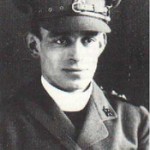I’ve long suspected that, for some, atheism (as opposed, say, to agnosticism or simple indifference) has many of the characteristics of religious faith, so here (via the New York Times) is just a bit more confirmation:
FAYETTEVILLE, N.C. — In the military, there are more than 3,000 chaplains who minister to the spiritual and emotional needs of active duty troops, regardless of their faiths. The vast majority are Christians, a few are Jews or Muslims, one is a Buddhist. A Hindu, possibly even a Wiccan may join their ranks soon.
But an atheist?
Strange as it sounds, groups representing atheists and secular humanists are pushing for the appointment of one of their own to the chaplaincy, hoping to give voice to what they say is a large — and largely underground — population of nonbelievers in the military.
Joining the chaplain corps is part of a broader campaign by atheists to win official acceptance in the military. Such recognition would make it easier for them to raise money and meet on military bases. It would help ensure that chaplains, religious or atheist, would distribute their literature, advertise their events and advocate for them with commanders.
But winning the appointment of an atheist chaplain will require support from senior chaplains, a tall order. Many chaplains are skeptical: Do atheists belong to a “faith group,” a requirement for a chaplain candidate? Can they provide support to religious troops of all faiths, a fundamental responsibility for chaplains?
Jason Torpy, a former Army captain who is president of the Military Association of Atheists and Freethinkers, said humanist chaplains would do everything religious chaplains do, including counsel troops and help them follow their faiths. But just as a Protestant chaplain would not preside over a Catholic service, a humanist might not lead a religious ceremony, though he might help organize it.
“Humanism fills the same role for atheists that Christianity does for Christians and Judaism does for Jews,” Mr. Torpy said in an interview. “It answers questions of ultimate concern; it directs our values.” …
I wonder, but to each his own







